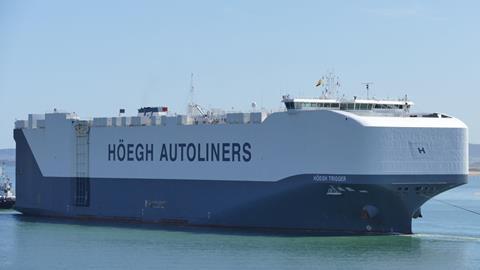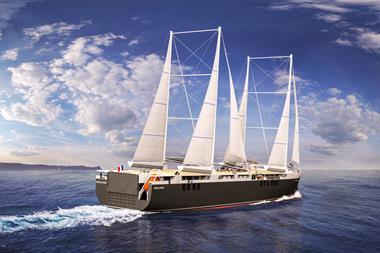The vessel Höegh Trigger has completed its first voyage on biofuel as part of a trial to find out whether it is a viable solution to reduce emissions. Through carbon offsetting, Höegh Autoliners claims the voyage was carbon neutral.
As discussed in detail in our recent feature on sustainable shipping for the automotive industry, biofuels are an attractive option for shippers to reduce the emissions in the supply chain, as they are a ‘drop-in’ solution that can be used in vessels with no engine modifications.

Norway’s Höegh Autoliners chose GoodFuels as the provider of the biofuel as it is virtually free of sulphur. GoodFuels is also used by UECC as it is largely composed of used cooking oil and therefore doesn’t compete with other land uses, which is the main drawback of biofuels if it is to be used on a large scale.
The remaining emissions generated were offset through certificates from Gold Standard, to make the voyage carbon neutral, according to Höegh.
“We are committed to leading the way towards a zero emissions future,” said Andreas Enger, CEO at Höegh Autoliners. “The success of this trial voyage demonstrates that with the use of alternative fuels like biofuel, we can contribute to significant steps towards decarbonisation in the maritime transportation industry. Our company and customers have high ambitions to combat climate change, and we are committed to delivering on that.”
Oskar Orstadius, chief sales officer, added: “Sustainable transportation is at the heart of Höegh Autoliners’ vision for the future. We are working closely with customers and partners to offer greener solutions. With this successful carbon neutral voyage, we are reducing our carbon footprint and supporting customers in decarbonising their logistics supply chain.”
The biofuel was used on the Höegh Trigger, one of the shipping line’s recent ‘New Horizon’ vessels that have been designed with a more efficient hull for less resistance. It travelled between Europe and South Africa and can carry up to 8,500 car equivalent units.
Biofuel is currently one of the only viable ways to reduce the carbon emissions of shipping, alongside LNG (liquefied natural gas), which is used by K Line, as well as Siem Car Carriers, which uses them to transport VWs. Hybrid propulsion systems are also used, and novel solutions like wind assist are being researched, but as our recent in-depth look into shipping emissions showed, there is still a long way to go, both in the technology, and in terms of the attitude to quotations in the supply chain.







































No comments yet